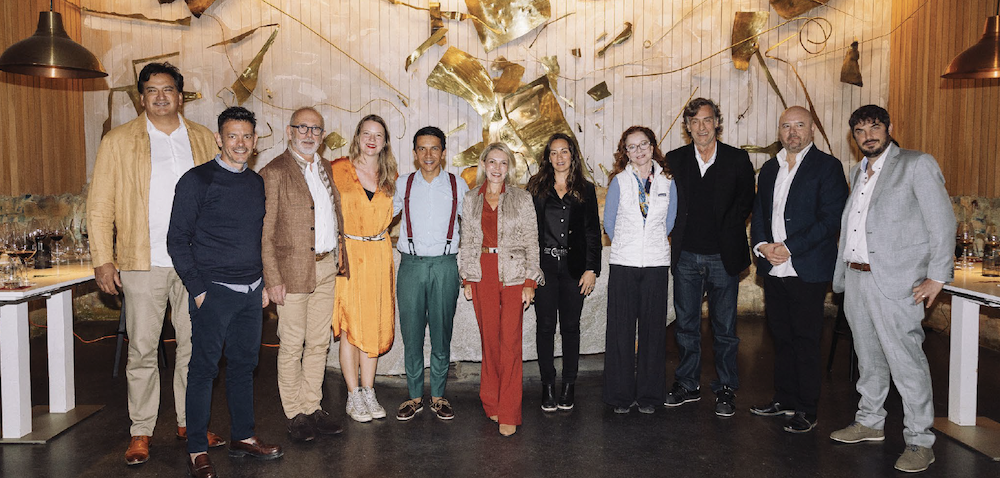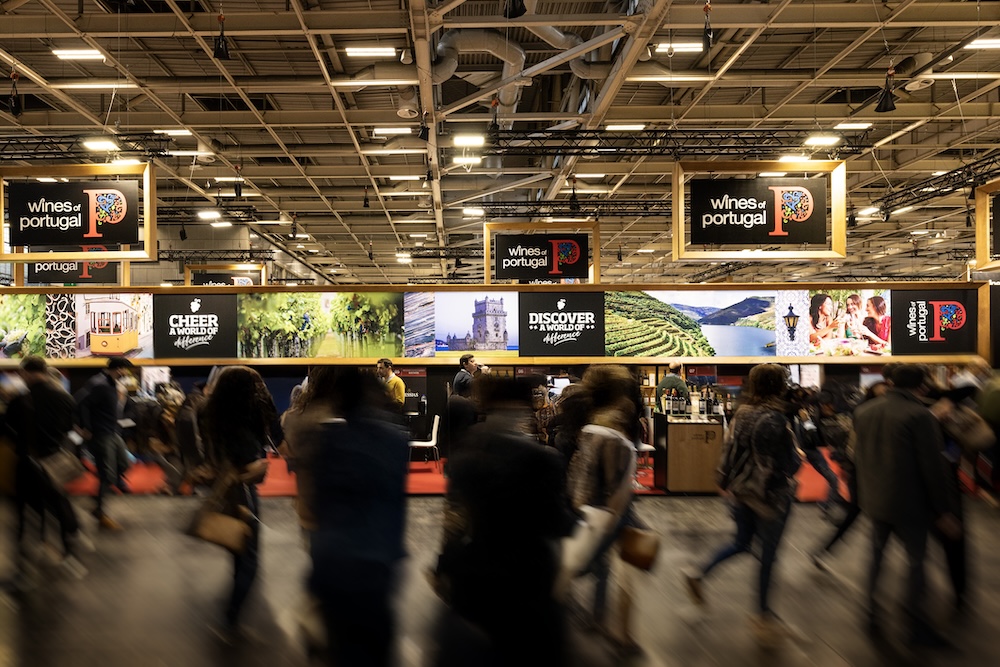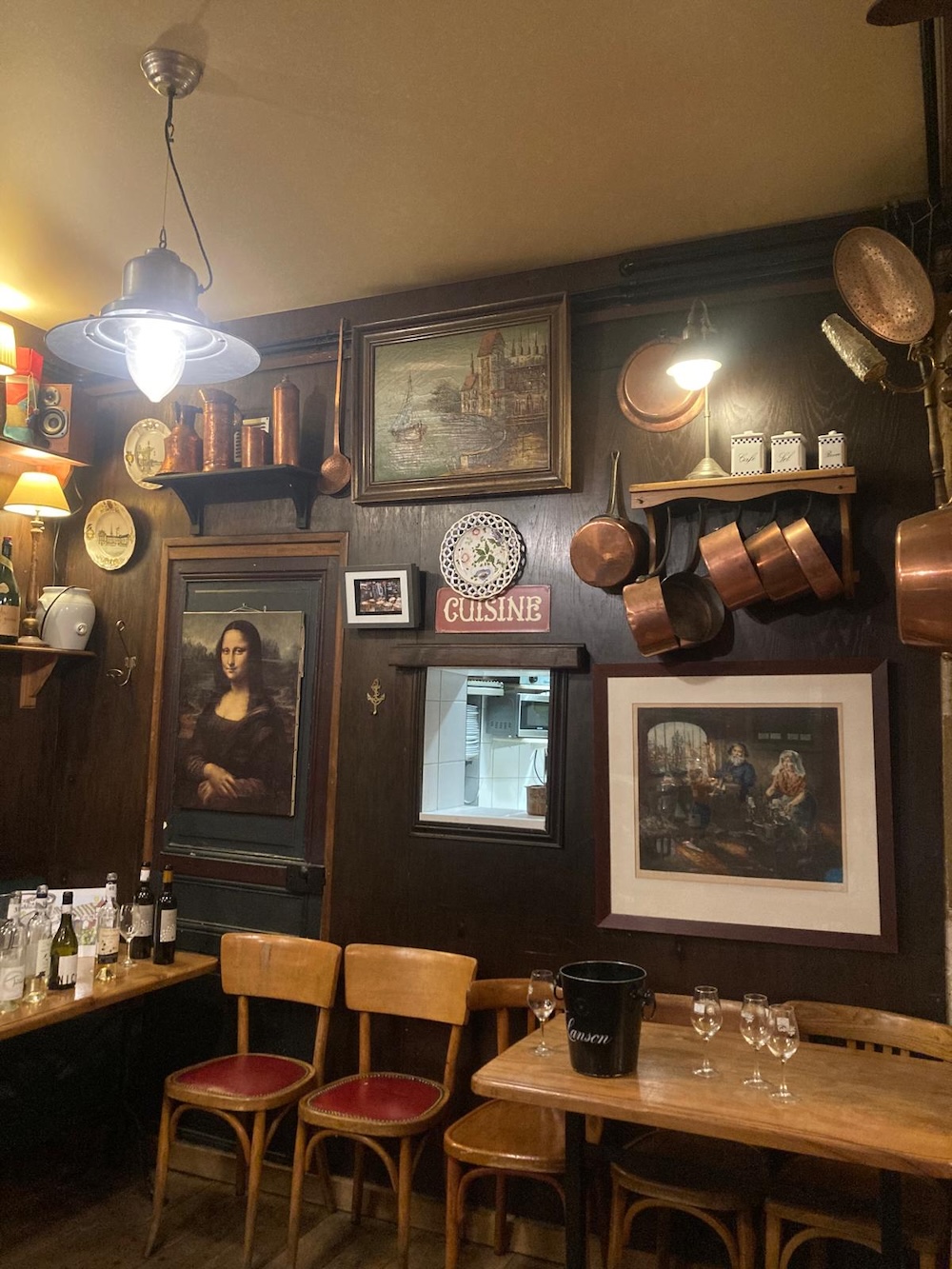
Discovery

Discovery
By Samarie Smith-Meletiou DipWSET, posted on 19 August 2024
The first encounter with an exceptional South African Cap Classique is often revelatory, heightening the appreciation of its quality. While these sophisticated sparkling wines are crafted using the traditional method, they don't aim to mimic renowned sparkling wines. Instead, they strive to carve out a unique identity on the world's sparkling stage. Perhaps they already have - subtly, sublimely.
Celebrating its 50th milestone in 2021, Cap Classique - formerly Méthode Cap Classique - rebranded to align with global naming conventions for traditional method sparkling wines. This change mirrors the succinctness of terms like Champagne in France, Cava in Spain, and Franciacorta in Italy, enhancing clarity, legal standing, and market positioning for South African Cap Classique. Like Champagne, the Cap Classique designation is earned through adherence to stringent production methods, including the crucial second fermentation in bottle, which imparts the distinctive characteristics beloved by sparkling wine enthusiasts.
While a broader array of grape varieties is permissible, exemplary Cap Classiques predominantly feature Chardonnay and Pinot Noir, with Pinot Meunier to a lesser extent. A recent amendment to South African legislation, effective from the 2023 vintage, mandates a minimum of 12 months spent on the lees, underscoring the commitment to quality. Additionally, the Cap Classique Producers Association (CCPA) has partnered with the Cape Wine Academy to establish the Cap Classique Academy, an educational initiative to foster a deeper understanding and appreciation of the category's diversity and complexity.
As South Africans celebrate Cap Classique Day on September 1st, iconic producers like Simonsig Wine Estate, where Cap Classique was born, have played pivotal roles in shaping the category's success. From market leaders like Graham Beck, who focuses exclusively on Cap Classique, to boutique producers like Charles Fox, the burgeoning reputation of Cap Classique has also attracted unexpected contenders, achieving remarkable success.
It is fitting that the beautiful winelands town Franschhoek (French corner) has become a flagbearer for Cap Classique. The French Huguenots sought refuge here in 1694, laying the foundation of its heritage. Today, the town boasts its own Cap Classique route and hosts the annual Cap Classique & Champagne Festival in December.
It is also home to stellar Cap Classique brands, of which the L'Ormarins Private Cuvee 2015 from Antonij Rupert Wyne has garnered 93 points from Gilbert & Gaillard. Haute Cabrière, too, has a rich history with Cap Classique in Franschhoek. Its founder, Achim von Arnim, was the second in 1983 to produce Cap Classique in South Africa - Pierre Jourdan, named after the French Huguenot who first owned the land, honouring the town's French heritage.
Cellar master Tim Hoek proudly shares Von Arnim was the first to truly focus on the noble Champagne varieties, and the Pierre Jourdan Blanc de Blancs 2018 duly impressed the tasting panel with 94 points.
"Today we work with suppliers from Robertson and the Breedekloof while the vineyard block for the Blanc de Blancs, planted in 2003, is situated here in Franschhoek, showcasing the valley's remarkable capabilities."
They aim to produce fruit-driven wines with Chardonnay as the star and Pinot Noir to flesh out the palate. "While Champagne serves as an inspiration, Cap Classique is showing steady growth thanks to the great work done by Pieter Ferreira and the CCPA. As Pieter always says, you must taste the sunshine."
The Blanc de Blancs is left on the lees for five years to emphasise its age-ability, and Hoek believes they are only now getting a solid understanding of lees time and the impeccable planning required to create a top-end Cap Classique.
Rickety Bridge cellar master Donovan Ackermann is driven by a passion for innovation, a trait shared by many in Franschhoek's Cap Classique community. They pride themselves on the mosaic of building blocks sourced from different clones, soil types, and microclimates in Franschhoek. This year, they are expanding their vineyard holdings with four hectares of Chardonnay, a promising sign of the forthcoming creations destined for their Cap Classique.
"We are certainly on top of things in South Africa, and the CCPA keeps us abreast of cutting-edge trends and technologies, hosting workshops that provide invaluable camaraderie and idea-sharing among fellow winemakers."

Rickety Bridge winemaker Donovan Ackermann and Mari Kotze, winemaker. Welcoming guests at their tasting room.
Winning the Best in Class with their Marné Brut NV at the 2019 Amorim Cap Classique Challenge gave the Klein Roosboom team the affirmation they needed to strive for excellence in the Durbanville Wine Valley. Klein Roosboom (Little Rose Tree) pays homage to the two original farms representing the estate. At the same time, owner Karin De Villiers honours her own family tree by naming the wines after her late husband, children, and grandchildren, with each back label featuring an open letter to these beloved individuals. De Villiers entered the wine business through weekend courses while her late husband Jéan was the viticulturist on his family's farm.
"I always had the dream of making my own Cap Classique," she shares, her eyes lighting up as she adjusts her signature bandana. A formidable woman, De Villiers has bravely built on Jéan's legacy by taking over as sole proprietor. Today her children are involved in the business, and even their winemaker, Piti Coetzee, is a family friend who has lived nearby all his life.
A remarkable phenomenon at Klein Roosboom is that 90% of their wine is sold directly at the cellar door. The jovial family atmosphere, the beautiful farm restaurant Jéan, and the unique wine-tasting nooks in cement fermenters that were opened and decorated add to the wine tourism appeal. Although Cap Classique is still produced in small quantities, the team has big ambitions to put Cap Classique on the map for a valley nudging Cape Town.
Coetzee is very excited about the Cap Classique they produce. "It's like wrapping up a Christmas gift only to unwrap its magic two years later," he says. "The Durbanville valley, with its undulating hills, creates cool microclimates. One can see the mist draping the hills in the morning, ensuring a slow ripening period that ensures finesse in the wines."
The Klein Roosboom My Way Brut 2020 (91) and Rosé (93) carry their fruit on bright acidities and a refined mineral structure, culminating into a chalky, lingering finish. The Brut, reminiscent of green apple and pear, is toned by rich pastry nuances from 32 months on the lees, while the Rosé exudes pomegranate, florals, and nectarine aromas with the same attractive biscuity note.
"The aim is to build a house for Cap Classique - a culture intertwined with people, good food, and great wine," adds Marné, Karin's daughter and brand manager. "We offer an intimate glimpse of who we are and what we love to do. My mom learned through trial and error, guarding the tanks from her yoga mat in the wee hours of the morning, and now we host events that bring people back, making them feel like family too."

Klein Roosboom winemaker Piti Coetzee

The De Villiers Family from Klein Roosboom
 The Klein Roosboom Marné Brut MCC is named after the owners daughter.
The Klein Roosboom Marné Brut MCC is named after the owners daughter.
Charles Fox hails from another cool wine-producing area - Elgin - uniquely set in a basin surrounded by mountains. Noted for its slow growing season between September and February, Elgin is significantly cooler than other viticultural areas. It bestows their grapes with long hanging periods to become phenolically ripe while attaining delicate flavours. This boutique winery only produces Cap Classique from estate-grown grapes and has learned to embrace the valley's weather whims, establishing an identity that soars to the top in Cap Classique conversations. Charles Fox, initially a businessman specialising in fashion and his wife Zelda chose Elgin as their retreat from the stressful corporate environment. They bought a fruit farm and slowly converted it into a wine farm in 2005.
"Being thorough and frugal, we started our wine journey in 2007 by planting our first vineyards on fallow land, aiming to make top-quality Cap Classique."
Thus, the Charles Fox brand was born, focusing on traditional Champagne varieties grown on different slope directions and soils to ensure its hallmark qualities and identities.
"Even though the sea is only 7 km away, we have a mountain between us, so we do not have the temperature moderation typical of most coastal regions.
Like most wineries, they are conscious of climate change, although the mean temperature in Elgin has become cooler over the last forty years. This may be due to the topography and cloud cover, but they still don't take it for granted, Zelda affirms.
"Charles' daughter, Sarah Birch, has a Master's in Environmental Studies and has worked on climate change for the U.N. in several African countries, the Western Cape Government, and is currently working in the United Kingdom on climate change. She keeps us on our toes about renewables, recyclables, and repurposing!"
Planting cover crops and moving to dry land farming in 2014 have resulted in slightly lower yields, yet excellent quality, with greater concentration and flavour. They are also moving to cane pruning instead of spur pruning on their new vineyards, which has shown excellent results.
Their commitment to maintaining consistent top quality was affirmed with a hat trick in the Gilbert & Gaillard tasting, awarding three of their Cap Classiques 90+ points. The Charles Fox Reserve Brut NV (90), the Blanc de Blancs 2017 (91), and the Vintage Brut 2017 (92) all underscore the elegance produced here, reflected in their refined mousse, fruit, and savoury balance, with bright persistence adding to their elegance.

Charles Fox - businessman turned wine farmer in Elgin.
 Charles Fox focus on the three traditional Champagne varieties.
Charles Fox focus on the three traditional Champagne varieties.

Zelda and Charles Fox converted a fruit farm into a wine farm to focus on Cap Classique only.
Cap Classique showcases how the South African wine industry pursues terroir and elevates the importance of vintage variation. The 300-year-old Twee Jonge Gezellen Estate in Tulbagh, the historic home of Krone, produces a collection of vintage-only, terroir-driven Cap Classiques. Although the estate became wine-producing in the 20th century and pioneered cold fermentation in the 1950s, a devastating earthquake in 1969 delayed the introduction of Krone Cap Classique by 20 years. The first Krone Borealis 1987 was released in 1991, marking the birth of a new generation of Cap Classique.
Head winemaker Stephan De Beer, who grew up in the mountainous valley, shares that due to power cuts, South African wine producers are forced to be radically self-reliant, with 30% of their energy now produced by solar. Despite such challenges, a global shortage of Champagne has seen Cap Classique rise as a superb alternative, leading to Krone Brut Rosé and Amphora being listed by Massimo Bottura (voted best chef in the world) at his Gucci Osteria in Italy.
Krone has set itself apart by exclusively crafting vintage Cap Classique and being the first to make a single vineyard site-specific Cap Classique range, which stood out in the Gilbert & Gaillard tasting. The trio includes the Twee Jonge Gezellen Blanc de Blancs (93), crafted from a specific block of Chardonnay on the farm; the Kaaimansgat Blanc de Blancs (91), sourced from one of the oldest Chardonnay blocks in the Elandskloof ward; and the Koelfontein Blanc de Blancs (91) from a block in the Ceres Plateau area.
"We bottle each vintage separately and don't blend away the beautiful story of each vintage," says De Beer. He emphasises that meticulous winemaking and attention to detail from vineyard to cellar set them up for any challenge. "We rise to the challenges. It comes down to respect for what we do, our community, the planet, and ultimately, what goes into the bottle."


Krone vineyards in Tulbagh enjoys warm days and cool nights due to the surrounding mountains.

Stephan de Beer - cellar master at Krone.

The Laborie team Kobus van der Merwe (chief winemaker) and Sacha Muller (winemaker).

Laborie Estate is a historic, working farm at the foothills of Paarl Mountain, less than an hour’s drive from Cape Town.
The Cap Classique story is one of indomitable personalities. In Paarl, the resilience of the French Huguenots helped shape South Africa's wine industry. Laborie, granted to French Huguenot Isaac Taillefert in 1691, witnessed the efforts of Taillefert and his son Jean's efforts to clear the land and plant vines. They soon produced wines that garnered the affection of one Leguat, a Frenchman visiting the Cape in 1698, calling it "the best in the colony and similar to our small wines of Champagne".
At present, winemaker Kobus van der Merwe, has led the brand to numerous victories. In the 2023 Amorim Cap Classique Challenge, Laborie emerged as the overall winner, the Laborie Blanc de Blancs 2017, securing the trophy for the best in its category, followed by Gilbert & Galliard adorning the 2018 vintage with 92 points. According to van der Merwe, maintaining brand equity is crucial in shaping Cap Classique's reception, achieved through consistent quality each year. While Paarl forms the base of most blends, regions like Wellington, Robertson, and Stellenbosch each lend their unique styles to Laborie's range.
"Cap Classique is one of the fastest-growing categories in our industry and a major focus for Laborie, especially in premiumisation. Thus, a premium look and feel is key to identifying the five styles in our range, catering to various palates."

A portrait of the legendary Desiderius Pongrácz.

Pongrácz winemaker Matthys Botes.
Pongrácz is another name synonymous with elegance in the realm of Cap Classique, steeped in the tale of Desiderius Pongrácz. A figure of aristocratic lineage and unconventional spirit, Pongrácz embarked on a journey from Hungarian aristocracy to the vineyards of South Africa.
He defied convention by embracing a career in viticulture, forsaking the traditions of his aristocratic lineage. Despite the upheavals of World War II, Pongrácz found his way to South Africa, where his tenure as Chief Viticultural Adviser at Distillers Corporation ushered in an era of innovation for the wine industry, challenging prevailing norms. Beyond his scholarly contributions, Pongrácz's legacy inspired the eponymous wine. It is a Cap Classique with a great trajectory, and its distinctive shape is that of an institution on many dinner tables.
The journey of Graham Beck underscores the profound transformation of a category deserving of recognition. It was founded by Graham Beck himself, whose initial indifference to wine shifted upon discovering the potential of the Robertson Valley for crafting exceptional sparkling wines, shares cellar master Pierre de Klerk.
"Today, the limestone soils of this area are sought after by many, and in 2015, the company focused all its energy solely on Cap Classique, which has been the case ever since the 2017 harvest."
Their dedication to excellence permeates every aspect of their operation, from night harvesting to a steadfast commitment to conservation and sustainability. Of course, this will make a consumer feel good about investing in quality, knowing their favourite Graham Beck Cap Classique is part of conserving a significant area of land for every hectare utilised and exploring eco-friendly packaging alternatives.
Embracing the diverse terroirs, Graham Beck collaborates with various producers to select parcels that impart unique characteristics to their Cap Classique’s. Leveraging the climatic nuances in Robertson, including diurnal temperature shifts, they optimise harvesting practices to preserve the grapes' freshness and integrity.
About the future, De Klerk articulates: “We aspire to grow our Vintage Collection, showcasing the immense quality of Cap Classique aged on lees for long periods (minimum 4 years in our case). Our newly-added Artisan Collection tier also allows us to release and showcase small-batch Cap Classiques of particular interest to the curious and discerning consumers."

Graham Beck cellar master Pierre de Klerk and COO Pieter Ferreira.

Graham Beck in Robertson is renowned for their significant contribution to the finest Cap Classique
For Cap Classique producers, it remains crucial to illustrate the value of Cap Classique. While Brut is a burgeoning category, introducing "Nectar" (Demi-sec style) to Cap Classique has significantly increased its consumption. This style appeals to consumers who prefer sweeter sparkling wines and now favour the quality difference and sophistication they find in sweeter Cap Classique. Perceptions are certainly changing, and the confidence of Cap Classique producers is growing as they stand firm in their ability to produce exceptional sparkling wines in the southern hemisphere. Great care is taken in protecting grapes, using technology to monitor vineyard stress levels and closely monitoring ripening to commit to minimal intervention in the cellar that embraces a sense of place while maintaining a consistent house style. While earlier harvesting periods indicate seasonal shifts, prompting producers to increase harvest capacity to ensure they can harvest quicker while maintaining quality, the bigger hurdle remains price point, as quality has now broken the price ceiling, which hinders growth. Cap Classique producers over-deliver on quality, far surpassing expectations for the current price, creating an opportunity for growth and broader recognition.

Discovery

Discovery

Discovery